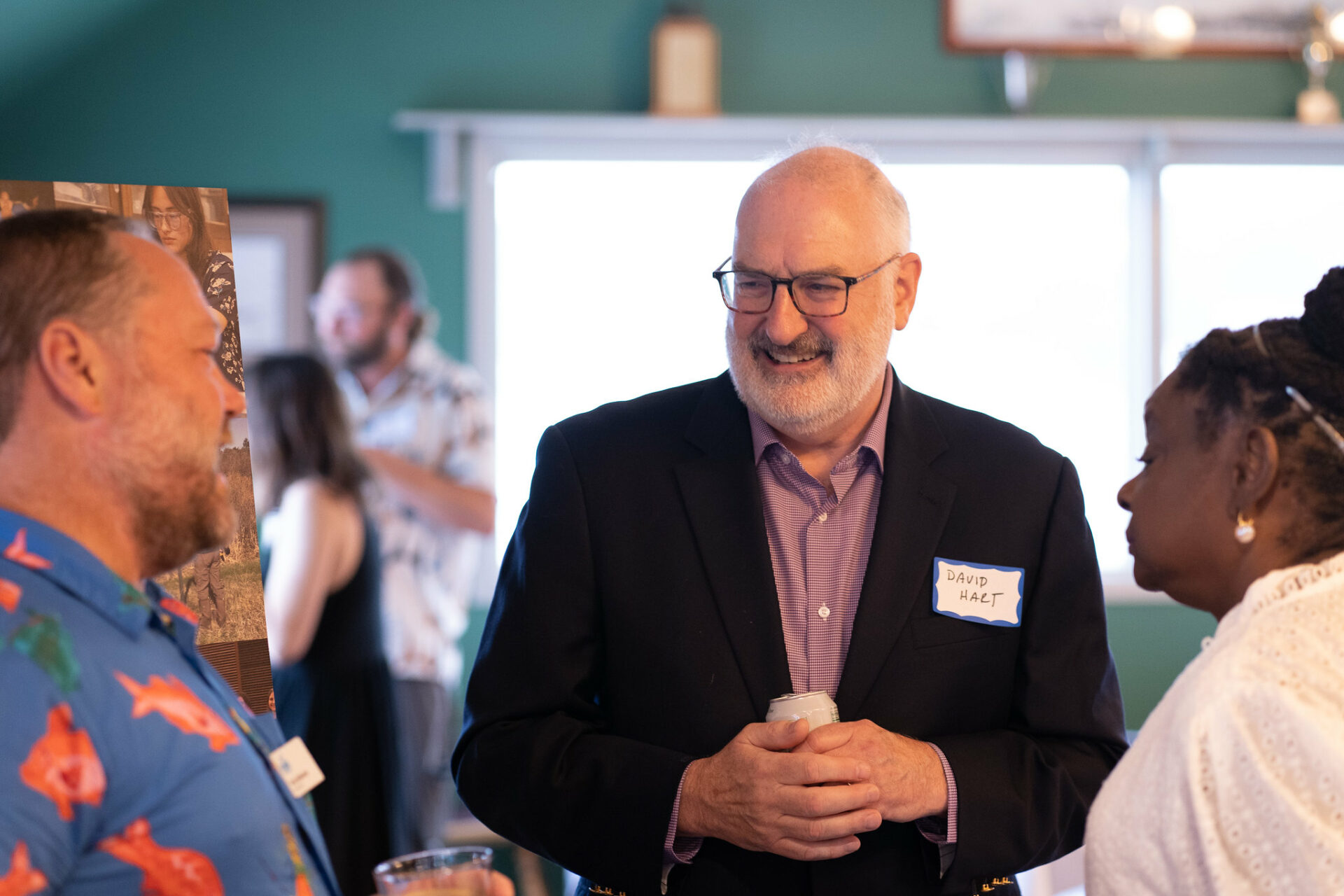When July 20 rolls around it’s perhaps time to put a new twist on an old saw: Give a man a fish and you feed him for a day. Teach a man aquaculture and you feed him for a lifetime.
July 20 is Aquaculture Day in the state and at Wisconsin Sea Grant we are celebrating by refocusing on our 14-part aquaculture podcast series.
It traces the history of aquaculture through the millennia, beginning with eel cultivation in Australia 6,000 years ago, shifting to carp husbandry in imperial China, moving through medieval “stew ponds” and landing squarely in contemporary times where Wisconsin Sea Grant is playing a big role. The series takes listeners to the nation’s largest yellow perch recirculating aquaculture system based in Albany, Ind.
“Right now in America we have an $11 billion trade deficit in seafood. I believe that in America we have the engineers. We have the technology. We have the genetic strains of several different types of fin fish. Easily, I believe, we could drop that trade deficit to nothing, to zero. Part of doing that is going to come through support from USDA, from Sea Grant to fish farmers, to the industry,” Norm McCowan says in the podcast. McCowan is Bell Aquaculture’s president and COO.
Those interested in becoming fish farmers are given some pointers in the so-named episode. In another episode, consumers can explore purchasing options when fishmongers discuss sustainable choices at their retail counters.
Two of the 14 episodes are video offerings. In “Growing Fish in Greenhouses,” series followers can visit the operations of an innovative experiment in ensuring food security in central-city Milwaukee where pioneering urban farmer Will Allen describes how he raises plants and fish together, with the assistance of Wisconsin Sea Grant’s Fred Binkowski.
Binkowski also takes viewers into his lab at the University of Wisconsin-Milwaukee School of Freshwater Sciences where he is constantly fine-tuning the right combination of fish biology, water chemistry and engineering to raise yellow perch in a recirculating system. In the video “Yellow Perch for the Hungry,” Binkowski demonstrates his research can be eaten. His months of experiments have ended; he’s tracked findings and is depicted donating more than 500 pounds of yellow perch to the Hunger Taskforce in Milwaukee.
The aquaculture series can be accessed and played locally or the entire series can be downloaded at iTunes from a link at the same URL.
Wisconsin’s Aquaculture Day is the 3rd Saturday of July as designated by an act of the Legislature. In making the recognition, the Legislature acknowledged aquaculture as an important Wisconsin agricultural industry and that it possesses a sound environmental history using sustainable best-management practices.
The Wisconsin Aquaculture Association reports that the state has more than 2,400 registered fish farms, comprising 1,984 private farms with ponds, 125 business farms, 213 public fee-fishing farms, six wholesale fish processing farms and 95 farms processing fish for human consumption. Wisconsin’s fish farmers contribute $21 million to Wisconsin’s economy through live bait, fee fishing, stocking and food fish production. Wisconsin is the largest seller/producer of aquaculture products in the Midwest with their products not only supplying gamefish and bait for recreational use, but as moving fish to restaurants in the Upper Midwest.
The aquaculture organization has some activities planned for Aquaculture Day 2013.





